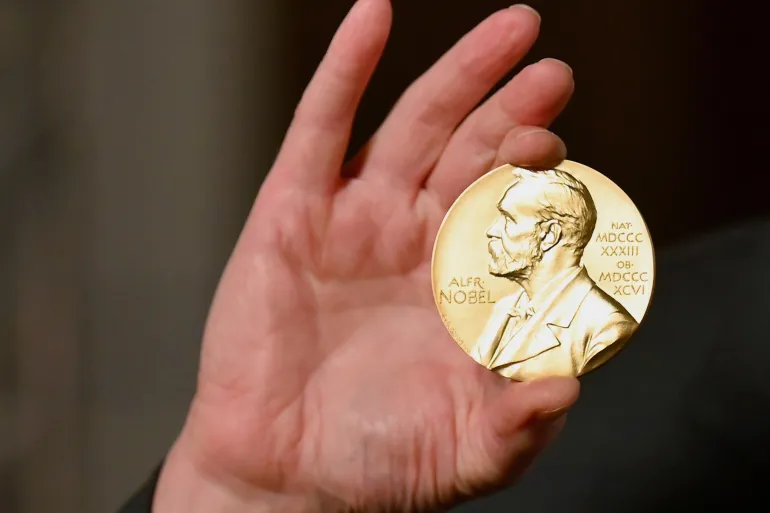Each year, the Nobel Prize celebrates the most brilliant minds in the world. The 2024 Nobel Prizes highlighted significant modern achievements — especially in AI — as well as past moments that shook the world.
This year, the Nobel Prize in Physics was awarded to Dr. John J. Hopfield and Dr. Geoffrey E. Hinton for developments in machine learning and AI. The award highlights the growing importance of AI and its potential impact on human life.
Both laureates are polymaths and pioneers in their field. The former is a neuroscientist and physicist at Princeton. The latter is a computer scientist at the University of Toronto, oftentimes referred to as the “Godfather of AI.”
Almost four decades ago, Hopfield created the Hopfield network, which is a neural network model. Hinton, around the same time, created the Boltzmann machine, which was a different neural network. They had never thought their models would have a connection to machine learning. Though it may seem unusual for a physics prize, neural networks have a deep and natural connection to natural sciences, especially physics.
The Nobel Committee awarded the 2024 Peace Prize to a group of atomic bomb survivors called Nihon Hidankyo. The prize was awarded for their decades-long fight to expose the catastrophic danger of nuclear bombs, urging the world to rid itself of nuclear weapons.
Nihon Hidankyo is the largest group of Hibakusha, meaning the survivors of Hiroshima and Nagasaki in Japanese. The group received commendation from President Joe Biden and former President Barack Obama, shortly after winning.
Han Kang won the Nobel Prize in Literature for her novel “The Vegetarian”, and became the first laureate from her country to do so. The award was given to the South Korean author for “her intense poetic prose that confronts historical traumas and exposes the fragility of human life” as described by the permanent secretary of the Swedish Academy.
Han, 53, was born in 1970 in Gwangju, South Korea, and was surrounded by books throughout her childhood. Her family moved to Seoul just months before the Gwangju uprising. When Han was 9, government troops fired on crowds of pro-democracy protesters, killing hundreds. The event shaped her views on humanity and more importantly, its potential for violence.
Han’s writing is now celebrated in South Korea, but that took some time, she said, and some of her books were initially greeted with bafflement. “The Vegetarian” was received as “very extreme and bizarre,” Han said. Now, Han is widely considered a visionary.
When the Swedish Academy asked how she was going to celebrate, she answered, “After this phone call I’d like to have tea — I don’t drink — I’m going to have tea with my son and I’ll celebrate it quietly tonight.”
The Nobel Prize in Chemistry for 2024 was given for the landmark work carried out on deciphering and engineering proteins, the molecular machinery of nature. The University of Washington’s David Baker was one of the recipients, working on the computational design of proteins, specifically creating novel proteins that might find applications in medicine and materials science.
The other recipients were Demis Hassabis and John Jumper from Google DeepMind, developers of AlphaFold — an AI capable of predicting the structure of proteins with unprecedented accuracy. AlphaFold has been cited in scientific studies more than 20,000 times.
Much like Geoffrey Hinton, the laureate in physics, Dr. Hassabis said at a news conference “Of course it’s a dual-purpose technology; It has extraordinary potential for good, but also it can be used for harm.” Some worry that this technology may be used to create new viruses or toxic substances that could be used in biological attacks. However, some agreements have been put in place in the hope of preventing AI research from causing harm.
The Nobel Prize in Physiology or Medicine 2024 was awarded jointly to Victor Ambros and Gary Ruvkun for the discovery of microRNAs—small RNA molecules that control gene expression. Their work introduced a new stratum to genetic control and demonstrated how microRNAs affect development, cell differentiation, and disease. These molecules, though discovered in a small roundworm, were thereafter identified as playing crucial roles in humans in cancer, neurological disorders, and cardiovascular diseases.
Daron Acemoglu, Simon Johnson and James Robinson received The Sveriges Riksbank Prize in Economic Sciences in Memory of Alfred Nobel 2024 due to their influential work on the role of institutions in economic development. The three researchers indicated how political and economic institutions, established during European colonization, explain why some countries are prosperous and some are not.
Their theories helped explain why some countries succeed in achieving real and continued economic growth while others remain in persistent stagnation. The main insight of their contributions establishes that inclusive institutions and democratic governance are critical ingredients to help long-term economic prosperity, reducing global inequality and building sustainable growth.
Dr. Acemoglu, who was in Greece when he received the call, has for years led lists of who might win a Nobel Prize.
